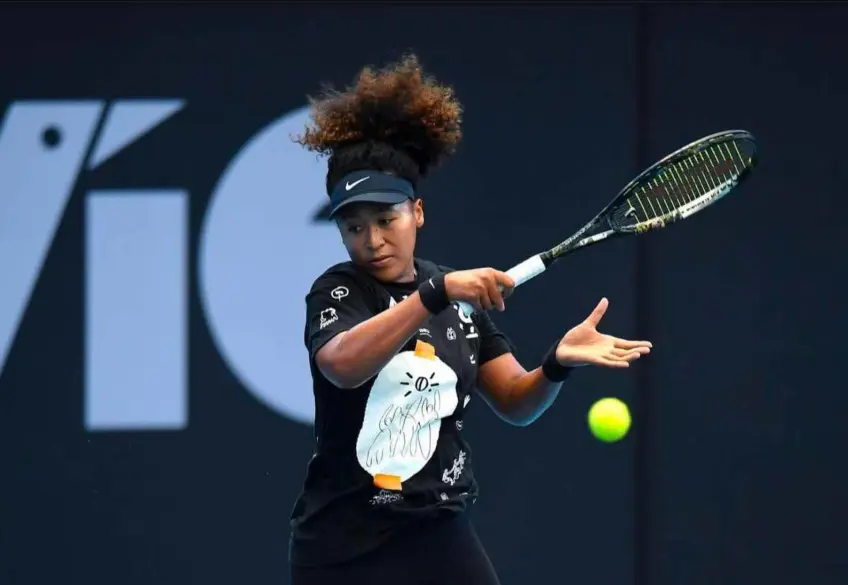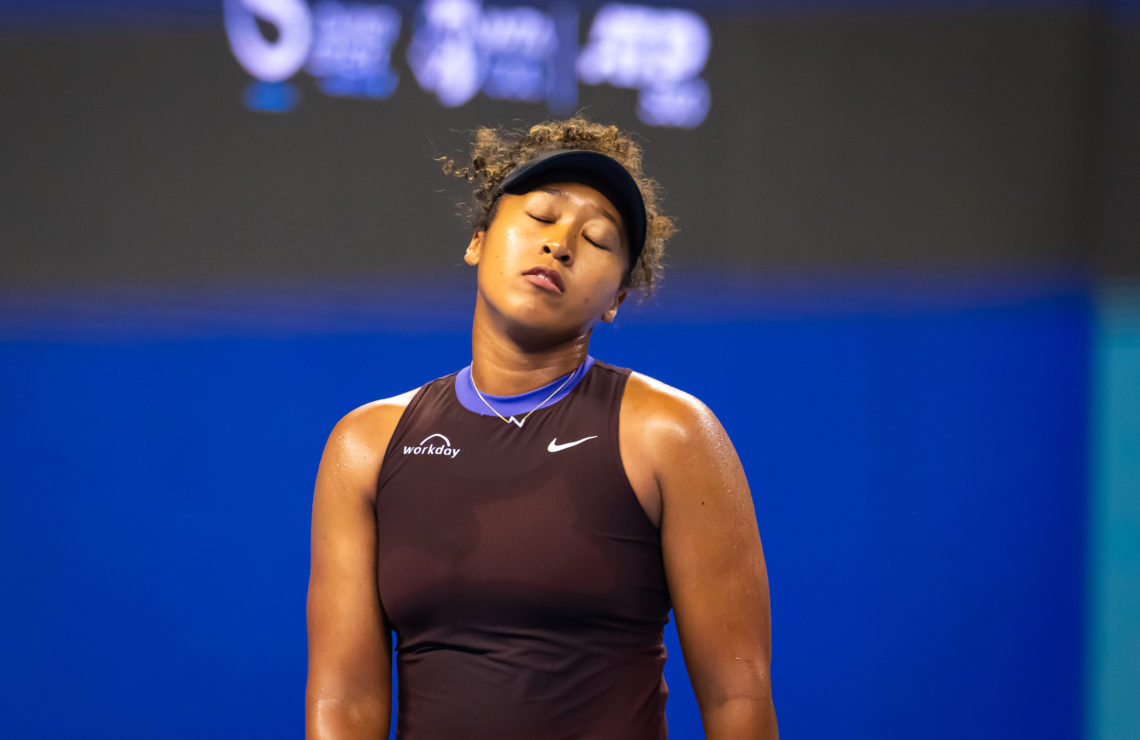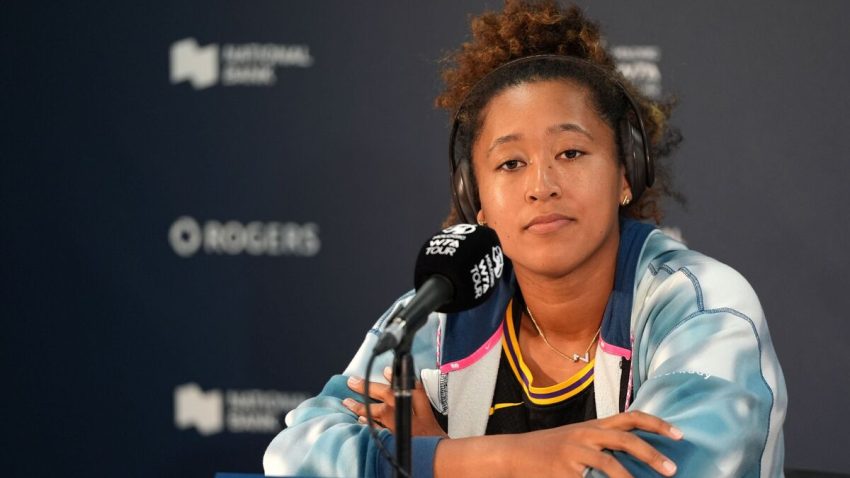Naomi Osaka is no stranger to the spotlight. Since bursting onto the tennis scene in 2018 with a US Open win, Osaka has not only become one of the sport’s brightest stars but also one of its most relatable figures. Her openness about mental health, personal struggles, and life beyond tennis has endeared her to fans across the globe. In a recent candid moment during a practice session, Osaka was asked a question that many might consider trivial but speaks volumes about the pressures of being in the public eye: Does she get bothered when fans greet her during practice?
Osaka’s response was both thoughtful and refreshingly honest, offering a glimpse into the complexities of her life as a top-tier athlete. Her reply was a balancing act of acknowledging her fans’ love while also asserting her need for space and focus during intense practice sessions.

Fans: The Double-Edged Sword
For many athletes, fan interaction is a double-edged sword. On one hand, they thrive off the energy and support from the people who follow their careers. On the other hand, there are moments—especially during practice or preparation for an important match—when this attention can feel overwhelming.
Osaka is no exception. The Japanese tennis superstar has always maintained a down-to-earth demeanor, often taking the time to engage with fans through social media, sharing her life outside of tennis, and even acknowledging the positive impact her fans have on her. Yet, as she explained in her recent conversation, practice is a time when she needs to fully concentrate on improving her game and not be distracted by external attention.
When asked directly if she gets “bothered” by fans approaching her during practice, Osaka answered candidly, saying that while she understands the enthusiasm and appreciation from her supporters, it can be disruptive at times. “I think I have a lot of respect for the fans, and I really appreciate all the support they give me,” Osaka said. “But during practice, I need to focus, and when people approach me, it can make it harder to concentrate. I try to be kind, but I also need to be true to myself and my goals on the court.”
Her response reflects the ongoing struggle many elite athletes face—balancing their public personas with the demands of professional sport. It’s not that Osaka doesn’t appreciate her fans, but as with any top athlete, there’s a time and place for everything. When it comes to practice, it’s about mental preparation and physical execution, both of which require complete focus.
Mental Health and Boundaries
Osaka’s willingness to speak about her boundaries is a crucial part of her public persona. In the past, she’s been open about her mental health struggles, particularly after her withdrawal from the 2021 French Open, where she cited anxiety and depression as factors in her decision. This was a watershed moment, not only for Osaka but for professional sports in general, as it sparked an important conversation about the mental health of athletes.
Since then, Osaka has made mental health a key part of her identity. She’s not afraid to set boundaries for her well-being, whether it’s stepping away from the sport to prioritize her mental health or being transparent about her need for solitude when preparing for big matches.
“I think it’s really important to have boundaries,” Osaka has said in past interviews. “We are not just machines. We are human, and we need time for ourselves to recharge.” This sentiment also reflects her response to the fan greeting question. While she appreciates her supporters, she recognizes that her mental and emotional well-being must come first, especially during moments of high intensity like practice.
This focus on mental health and self-care has set an example for athletes everywhere. It’s a reminder that while fame and success bring incredible rewards, they also come with their own set of challenges that need to be managed in a healthy, sustainable way.
The Struggle for Balance
For Osaka, the pressure of being in the public eye and balancing fan interactions is compounded by the high expectations she faces as one of the best players in the world. In many ways, Osaka has been both a champion and a trailblazer in terms of changing the narrative around mental health in sports. She’s shown that it’s okay to take a step back when needed, but this comes with its own challenges.
As a global icon, Osaka often finds herself at the center of media scrutiny, where every move she makes is dissected. This includes her interactions with fans, whether it’s a quick selfie request or an off-hand comment during practice. While many fans may view these moments as opportunities to connect with their idol, for Osaka, they are interruptions to the intense mental and physical work required to maintain her competitive edge.
“I’ve learned to take things in stride,” Osaka noted. “But it doesn’t make it easy. I’m always working to find that balance between being available for my fans and being present for myself when I need to focus.”
A Lesson in Setting Boundaries
Osaka’s willingness to set boundaries, even with her fans, is an important lesson for anyone in a high-profile position. Whether in sports, business, or entertainment, the ability to say no, to put your own needs first, and to protect your peace is crucial for long-term success and well-being.
Her transparency about needing personal space during practice shows her commitment to her craft. But more importantly, it also emphasizes the importance of self-respect and the value of maintaining personal boundaries in an often intrusive world.
In a time when athletes are constantly expected to perform both on and off the court, Osaka’s honesty about the need for downtime is a refreshing reminder that self-care is not just a luxury—it’s a necessity.
The Bigger Picture: Respect for the Athletes
Naomi Osaka’s candid response also highlights the need for fans to respect the boundaries of athletes. While fan engagement is a beautiful part of the sports world, it’s crucial to recognize when athletes are in the zone, preparing for the challenges ahead. Osaka’s career continues to be a testament to her drive, resilience, and ability to navigate the pressures of professional tennis. But as she continues to carve out her space in the sport, she also sets the tone for what it means to balance success with self-care.
In many ways, Osaka is redefining what it means to be a modern athlete—one who is not only a competitor but also a person with personal needs and boundaries. It’s clear that while she is grateful for the support of her fans, her focus remains firmly on the court and her mental health. For fans of Osaka, understanding this balance only enhances the respect for the athlete and her accomplishments.
Conclusion
Naomi Osaka’s response to the question about being “bothered” by fan interactions during practice serves as a powerful reminder that athletes, despite their public profiles, are human beings with the same emotional and physical needs as anyone else. Setting boundaries is a critical part of maintaining mental well-being and achieving success, and Osaka’s candidness about her needs offers a valuable lesson for fans and athletes alike.
As Osaka continues to build her legacy both on and off the court, her ability to navigate the pressures of fame while staying true to herself will undoubtedly inspire future generations of athletes. And for her fans, the respect for her journey only deepens as they realize that, just like everyone else, Naomi Osaka needs her space to grow, thrive, and succeed.

